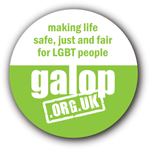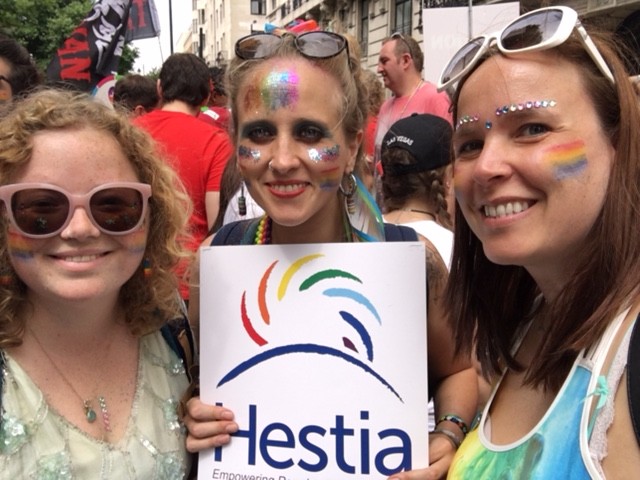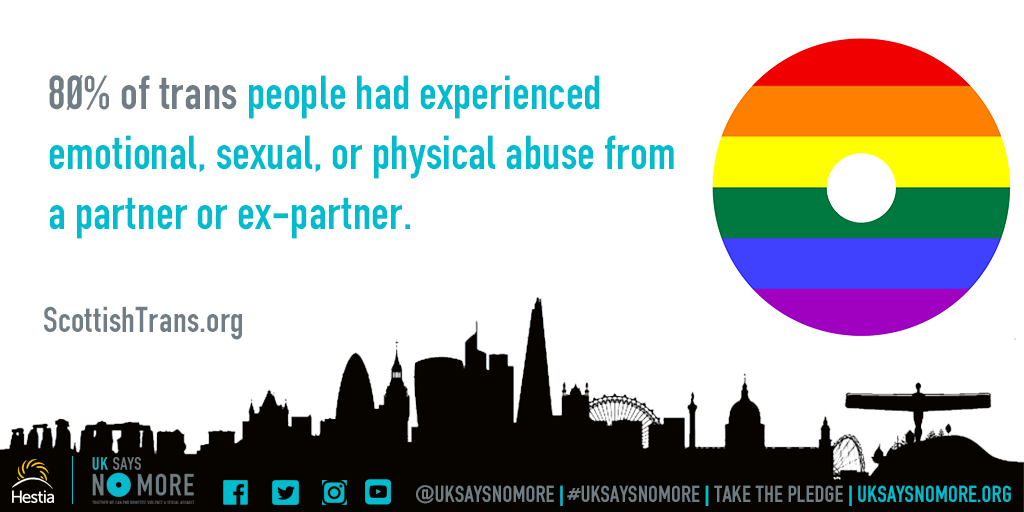Celebrating LGBTQ+ Pride in London 2017
On Saturday 8th July 2017 London charity Hestia took part in Pride in London 2017 to celebrate diversity of their staff, volunteers and service users.
In total, 20,000 people from over 300 organisations walked 1.4 miles from Portland Place through Regent Street before ending in Whitehall.
Hestia’s involvement in the parade had been facilitated by Hestia’s LGBTQ+ Network. Launched in 2016, the network raise awareness of LGBTQ+ issues within Hestia, promote visibility and equality and to support each other.
Last May, Hestia launched the UK SAYS NO MORE campaign to raise awareness of domestic violence and sexual assault.

Chaired by Cosimo Matteini, Volunteer and Befriending Coordinator, said the day was a huge success for the organisation.
“It was such a great day! It was the first time Hestia attended Pride in London and it was an important achievement a year after the LGBTQ+ network was started.”
Hestia is proud to support the inclusion of service users and volunteers in all events.
“It was wonderful that a mixture of staff, volunteers, service users, family and friends were able to attend and celebrate diversity together. It was an empowering feeling walking along the streets of Central London with a joyous crowd of people.”
Domestic violence in LGBTQ+ relationships
Domestic violence and sexual assault are often underreported, especially in the LGBTQ+ community.
This can be for variety of reasons such as not feeling comfortable to disclose your sexual preference or gender identity, a threat of being ‘outed’ by your partner if you try to seek help, or fear of being isolated from the community.
Abuse can occur in many forms such as physical, financial, emotional and psychological, and for those in LGBTQ+ relationships there are unique factors which perpetrators may play upon to carry on the abuse.
There are also specific barriers LGBTQ+ victims of abuse may face when leaving an abusive relationship or reporting abuse. Learn more about abuse in LGBTQ+ relationships and the specific barriers victims of sexual or domestic abuse may face when seeking support.
Support available
If you are worried that you or someone you know is in an abusive relationship, get in touch with Galop, who run the National Lesbian, Gay, Bisexual and Trans* (LGBT) Domestic Violence Helpline.
Y ou can call the helpline at 0300 999 5428 or 0800 9995428.
ou can call the helpline at 0300 999 5428 or 0800 9995428.
Opening Times:
10am – 8pm Monday
10am – 5pm Tuesday
10am – 5pm Wednesday
10am – 8pm Thursday
1pm – 5pm Friday
(1pm – 5pm Tuesday is trans specific service).
Recommended reading:
Why should organisations have a domestic violence policy?
Looking after your mental health as a survivor
[maxbutton id=”31″ ] [maxbutton id=”5″ url=”https://uksaysnomore.org/learn/lgbtq/” ]




